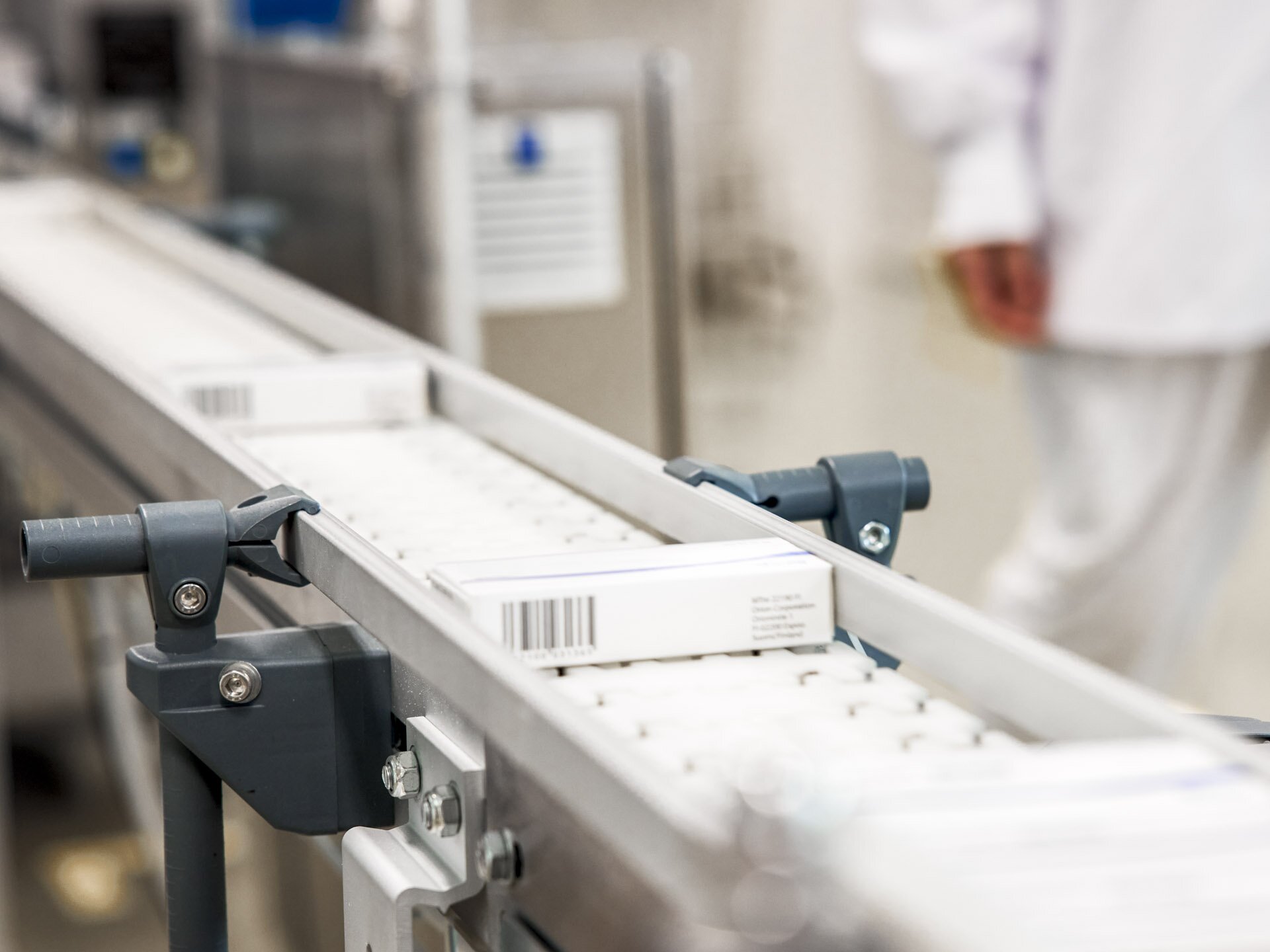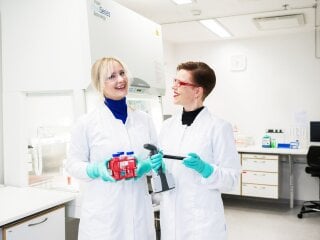Orion is an exceptional pharmaceutical company that is has expertise in both human and veterinary drug development. The company has its own research and product development unit for human pharmaceuticals, the expertise of which also benefits veterinary research.
“Pets are nothing less than family members these days, and they have the right to medical care just as humans do,” says Niclas Lindstedt, Vice President for Orion Pharma Animal Health.
Our changing attitude towards animal welfare is reflected in Orion’s product portfolio. The company has strong expertise particularly in behavioural drugs for animals. Orion’s product for alleviating noise anxiety in dogs is the first pharmaceutical product of its kind in the world.
“We are currently developing a number of new drugs that improve the quality of life for dogs and cats,” Lindstedt says.
Orion’s animal health products reach consumers quickly
A veterinary drug is often based on human drug development, when a certain pharmaceutical ingredient is taken up to be developed further for animal health. Some of Orion’s animal health products are based on human pharmaceuticals already on the market. Close collaboration between experts in animal and human medicines speeds up the development of veterinary drugs.
“The safety of drugs developed for human consumption is tested on animals. This helps us understand how an ingredient affects a certain species, and allows us to quickly proceed to clinical trials,” says Mirja Huhtinen, Animal Health Development Director.
The time to market in human drug development is between 9 and 13 years, whereas veterinary medicines are usually on the market in 5 to 9 years.
Veterinary drug development benefits human pharmaceutical research
While Orion is a relatively small player in the market for veterinary medicines, its research and development operations are significant. Orion is the first Finnish company to develop a proprietary ingredient in a veterinary medicine.
“The initial aim was to develop a hypertension drug for humans but once we discovered the sedative effect through its target mechanism, we decided to optimise the ingredient as an animal sedative,” Huhtinen says.
Detomidine received marketing authorisation in Finland in 1983, initially for use in horses. The same molecule family was used for sedative products for cats and dogs as well as for their antagonist for sedation reversal.
“Close collaboration between human and animal drug development also benefits humans. Dexmedetomidine, a more active ingredient used as a human sedative in intensive care settings, was later isolated from the original cat and dog sedative,” Huhtinen explains.
Veterinary medicines are subject to strict regulations
In order to enter the market, veterinary medicines require marketing authorisation. Marketing authorisation is issued to products that are proven to meet the efficacy and safety criteria for the target species.
“In veterinary drug development, this is a heavy process, as trials must be completed on all target species,” says Jaana Mero, Senior Regulatory Affairs Manager.
The regulations on veterinary medicines have become gradually stricter over the years. For example, the applicant for marketing authorisation must show that a veterinary medicine does not cause a safety risk to humans or the environment. Production animal drugs must be tested for residues, as the treated animal may end up in the food chain.
Regulatory affairs are a demanding specialty
Orion develops veterinary medicines for global markets, and they are currently on sale in 60 countries. The largest market areas are the US and Europe.
Every region has its own official regulations. This is something that must be taken into consideration as early as when selecting ingredients.
“Orion has strong expertise in the US and European regulations. We are able to predict how the authorities will process our applications,” Mero says.
Development does not stop with authorisation
The drug development process continues after the market authorisation has been granted. The marketing authorisation holder is obliged to continuously collect information on any adverse reactions and report them to the authorities. Changes may need to be made to the use or manufacturing of a product during its lifecycle. The marketing authorisation holder must submit an updated application for authorisation.
“The new EU legislation and regulation on veterinary medicinal products also change thenational regulations.. Orion is actively involved in the development of the regulatory framework through its own specialist team,” Mero says.











